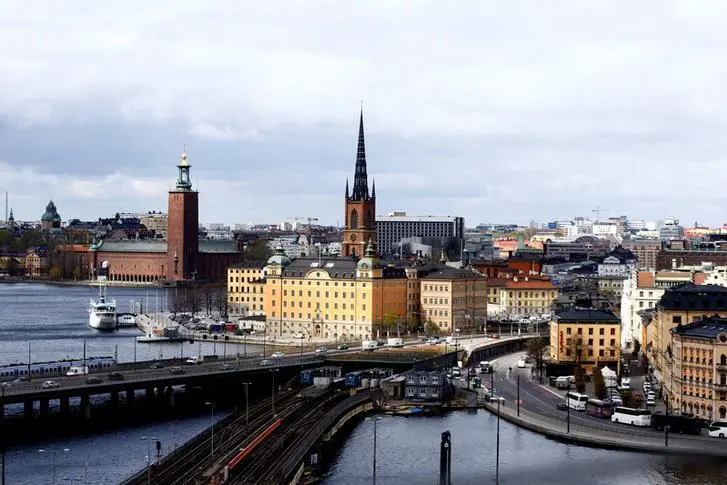PHOTO
Sweden's economy grew robustly in the second quarter, if slightly less than previously reported, data showed on Monday, but surging inflation has cast a pall over the outlook for the second half of the year.
Gross domestic product (GDP) was downwardly revised to growth of 0.9% in the second quarter from the previous three-month period and to 3.8% growth from a year earlier, the statistics office said, blaming negative net exports.
A preliminary reading had shown the economy grew 1.4% in the quarter and expanded 4.2% on an annual basis. On the positive side, growth for the first quarter was revised upward.
The relatively strong figures are unlikely, however, to lift the mood of consumers and businesses. Sweden is due to hold general elections on Sept. 11 with the centre-left and right-wing blocks neck-and-neck in recent opinion polls.
Running at its highest level for more than 30 years in the wake of war in Ukraine, inflation - and higher interest rates -are expected to put the brakes on the economy in the second half of this year with growth coming to a near standstill in 2023.
In its most recent forecast, the government said it expected the economy to expand by just 0.4% next year with the risks to the forecast firmly on the downside.
Inflation could prove more persistent than currently expected and the central bank may need to tighten policy faster and further than it currently forecasts.
The central bank will announce its next policy decision on Sept. 20 with many analysts expecting a hike by as much as 75 basis points, taking the benchmark rate to 1.5%.
The central bank is seen likely to hike by at least half a percentage point in November as well.
Consumer confidence has already hit record lows and house prices have started to slide, while businesses are also beginning to fret.
Separate data on Monday showed retail sales fell 0.6% in July from the previous month.
(Reporting by Simon Johnson, Gdansk Newsroom; editing by Niklas Pollard)





















